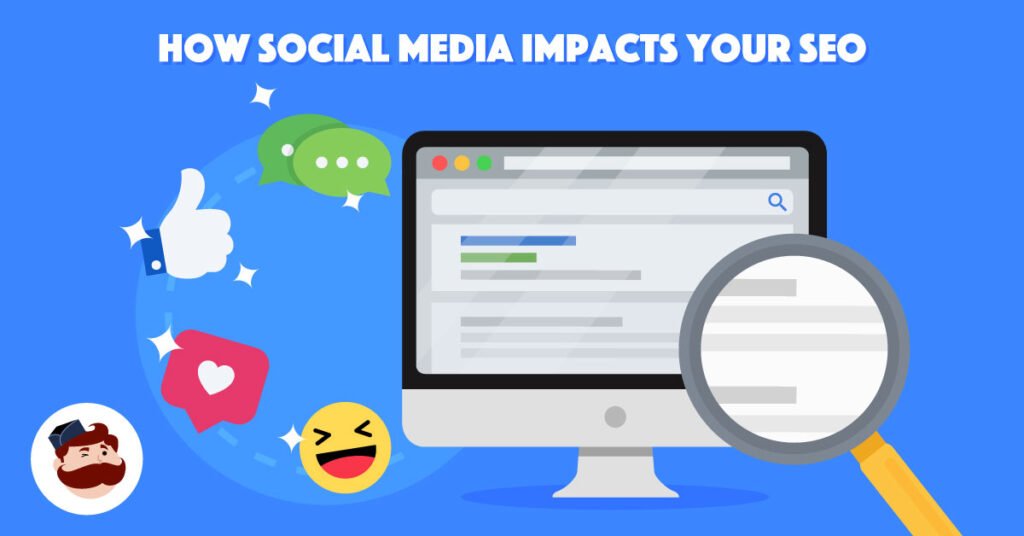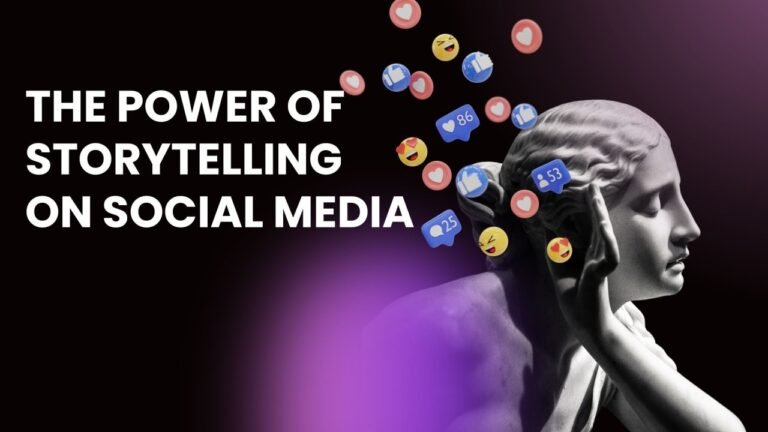How Social Media Impacts Off-Page SEO
In today’s digital landscape, mastering off-page SEO is crucial for any business that wants to stand out in the crowded online space. As a local Sacramento marketing agency, we at Social Peak Media understand that off-page SEO isn’t just about link building anymore—it’s about creating a strong, interconnected web of content, engagement, and brand presence. One of the most powerful tools at your disposal for this is social media.
Social media platforms aren’t just for brand visibility and customer engagement. They also play a significant role in shaping your off-page SEO strategy. While Google may not directly count social signals (likes, shares, and comments) as ranking factors, there’s no denying that an active and engaged social media presence can influence your SEO efforts in multiple ways. This article will explore how social media impacts off-page SEO and what you can do to optimize your strategy for better results.

Building a Strong Social Media Presence for Better SEO
To maximize the impact of social media on your off-page SEO, you need to build a robust social media presence. This goes beyond merely creating accounts on every platform. It requires a strategic approach that aligns with your overall marketing goals.
First, identify where your audience spends their time. For local businesses, this might mean focusing on platforms like Facebook and Instagram, where local communities are highly active. Once you know where to focus, the next step is to consistently share high-quality content that resonates with your audience. This content should be a mix of informative, engaging, and entertaining posts that encourage interaction.

Building a strong social media presence isn’t just about frequent posting. It’s also about fostering a community. Engage with your followers by responding to comments, sharing user-generated content, and participating in relevant conversations. Over time, this will help establish your brand as a trusted voice in your industry, which can lead to increased mentions and shares across the web—key components of a successful off-page SEO strategy.

Optimizing Social Media Profiles for SEO
Your social media profiles are often the first point of contact between your brand and potential customers. As such, it’s essential to optimize these profiles for SEO. Start by ensuring that your business name, address, and phone number (NAP) are consistent across all platforms. This consistency helps with local SEO and builds trust with search engines.
Include relevant keywords in your bio and about sections, but make sure to do so naturally. For example, if you run a Sacramento-based bakery, your Instagram bio might read, “Serving the best cakes in Sacramento since 2005.” This simple description tells users and search engines what your business is about and where you’re located.
Another critical aspect of optimizing your social media profiles for SEO is using branded hashtags. Branded hashtags help create a cohesive brand identity across platforms and make it easier for users to find your content. Over time, this can lead to more user-generated content featuring your brand, which further enhances your off-page SEO.
The Connection Between Social Signals and SEO Rankings

While social signals may not be direct ranking factors in Google’s algorithm, they do contribute to your overall SEO strategy in several ways. Social signals are the likes, shares, retweets, and comments that your content receives on social media platforms. These interactions can indirectly impact your SEO by driving more traffic to your website and increasing your content’s visibility.
When your content is widely shared on social media, it sends a signal to search engines that your content is valuable and relevant. This increased visibility can lead to more backlinks from other websites, which are a critical component of off-page SEO. In essence, social signals can create a ripple effect, amplifying your content’s reach and impact.
Moreover, social media profiles often rank high in search engine results, especially for branded searches. A strong social media presence can dominate the first page of search results, pushing down negative or irrelevant results and giving your brand more control over its online reputation.
Encouraging Social Shares for SEO Benefits
To leverage social signals for SEO, you need to encourage your audience to share your content. One way to do this is by creating content that’s not only valuable but also shareable. Infographics, listicles, and how-to guides are examples of content that tends to perform well on social media.
Make sharing easy by including social sharing buttons on your blog posts and web pages. The more seamless the process, the more likely users are to share your content with their networks. Additionally, consider running social media contests or campaigns that incentivize sharing. For example, you could offer a discount or freebie in exchange for sharing a post or tagging a friend.

Another effective strategy is to engage with influencers in your industry. Influencers have large, engaged followings and can amplify your content’s reach. When an influencer shares your content, it not only boosts your social signals but also enhances your credibility and authority, which can positively impact your off-page SEO.
Leveraging Social Media for Brand Awareness and Link Building
Brand awareness is a critical component of off-page SEO, and social media is one of the most effective channels for building it. The more familiar people are with your brand, the more likely they are to mention it in blogs, articles, and social media posts—each of which can provide valuable backlinks to your site.
A strong social media strategy can help you build relationships with other businesses, bloggers, and influencers who can link back to your content. These relationships often start with simple interactions on social media, such as liking a post, leaving a thoughtful comment, or sharing someone else’s content. Over time, these interactions can lead to collaborations, guest blogging opportunities, and other link-building strategies that enhance your off-page SEO.

Creating Shareable Content for Link Building
To maximize the impact of your social media efforts on link building, focus on creating content that others will want to share and link to. This might include in-depth blog posts, industry reports, or eye-catching infographics. The key is to create content that provides value and positions your brand as a thought leader in your industry.
When your content is shared on social media, it increases its chances of being linked to by other websites. For example, a well-researched blog post on industry trends that gains traction on LinkedIn could be picked up by industry publications or bloggers looking for content to reference in their own articles.
Another strategy is to use social media to promote your content to journalists and bloggers. Platforms like Twitter and LinkedIn are great for this, as many journalists use these platforms to find sources and content for their stories. By building relationships with these individuals on social media, you can increase the likelihood that they will link to your content in the future.

Social Media Advertising for Enhanced Link Building
Paid social media advertising can also play a role in your off-page SEO strategy. By promoting your content to a targeted audience, you can increase its visibility and chances of being linked to by other websites. For instance, a promoted post on Facebook could reach bloggers and influencers who may find your content valuable and choose to link back to it.
In addition to boosting link-building efforts, social media advertising can help you reach new audiences and expand your brand’s online presence. The more people are exposed to your brand, the more likely they are to mention it on their own websites or social media channels, further enhancing your off-page SEO.
Best Practices for Social Media Content that Boosts SEO
Creating content that resonates on social media is an art and a science. To maximize its SEO benefits, your content needs to be both engaging and aligned with your overall SEO strategy.
Start by ensuring that your content is visually appealing. Posts with images or videos tend to perform better on social media, garnering more likes, shares, and comments. But it’s not just about aesthetics; the content needs to provide value. Whether it’s a quick tip, a detailed tutorial, or an inspirational quote, your posts should offer something that encourages users to interact and share.

Consistency is key. Regular posting helps keep your brand top of mind and signals to search engines that your social media profiles are active and relevant. Use a content calendar to plan your posts ahead of time and ensure that you’re consistently sharing a mix of promotional, educational, and entertaining content.
Incorporating Keywords into Social Media Content
While you don’t want to stuff your social media posts with keywords, it’s important to use them strategically. Incorporate relevant keywords into your captions, hashtags, and even in the text on images when appropriate. This helps increase the chances that your content will be discovered by users searching for those terms on social media platforms.
Another best practice is to repurpose your existing SEO content for social media. For example, if you’ve written a blog post optimized for a specific keyword, create a series of social media posts that highlight key points from the article. This not only drives traffic back to your website but also reinforces your SEO efforts across multiple channels.

The Role of Social Media Engagement in Off-Page SEO
Engagement is the lifeblood of social media, and it plays a significant role in off-page SEO. When users engage with your content—whether by liking, sharing, commenting, or clicking through to your website—they send positive signals to search engines. These signals can indirectly influence your rankings by increasing your content’s visibility and reach.
But engagement doesn’t happen by accident. It requires a strategic approach to social media management. Start by understanding your audience and what types of content resonate with them. Are they more likely to engage with videos, infographics, or blog posts? Once you know what works, focus on creating more of that content.

Encouraging User-Generated Content
One of the most effective ways to boost engagement is by encouraging user-generated content (UGC). UGC not only increases your brand’s credibility but also provides additional content that can be shared across social media platforms, further enhancing your off-page SEO.
You can encourage UGC by running contests, asking for reviews, or simply encouraging customers to share their experiences with your products or services on social media. When users tag your brand in their posts, it not only increases your visibility but also provides potential backlinks to your website.

Responding to Comments and Mentions
Social media is a two-way street. To build engagement, you need to be an active participant in the conversation. Respond to comments on your posts, thank users for sharing your content, and engage with mentions of your brand across social media platforms. This not only builds a stronger relationship with your audience but also increases the likelihood that they will continue to engage with your content in the future.
Regular engagement with your audience also signals to search engines that your brand is active and relevant, which can positively impact your off-page SEO. The more interactions your content generates, the more likely it is to be shared and linked to, further boosting your SEO efforts.

Conclusion
In the ever-evolving world of digital marketing, off-page SEO remains a critical component of your overall strategy. While traditional link-building tactics are still important, the role of social media in shaping your off-page SEO cannot be ignored. By building a strong social media presence, leveraging social signals, and fostering engagement, you can enhance your SEO efforts and drive more traffic to your website.
At Social Peak Media, we specialize in helping small businesses in Sacramento navigate the complexities of digital marketing. Whether you’re looking to improve your off-page SEO or build a more robust social media strategy, we’re here to help. Let’s work together to elevate your brand and achieve your marketing goals.
Disclosure: Our blog contains affiliate links to products. We may receive a commission for purchases made through these links. However, this does not impact our reviews and comparisons. We try our best to keep things fair and balanced, in order to help you make the best choice for you.






